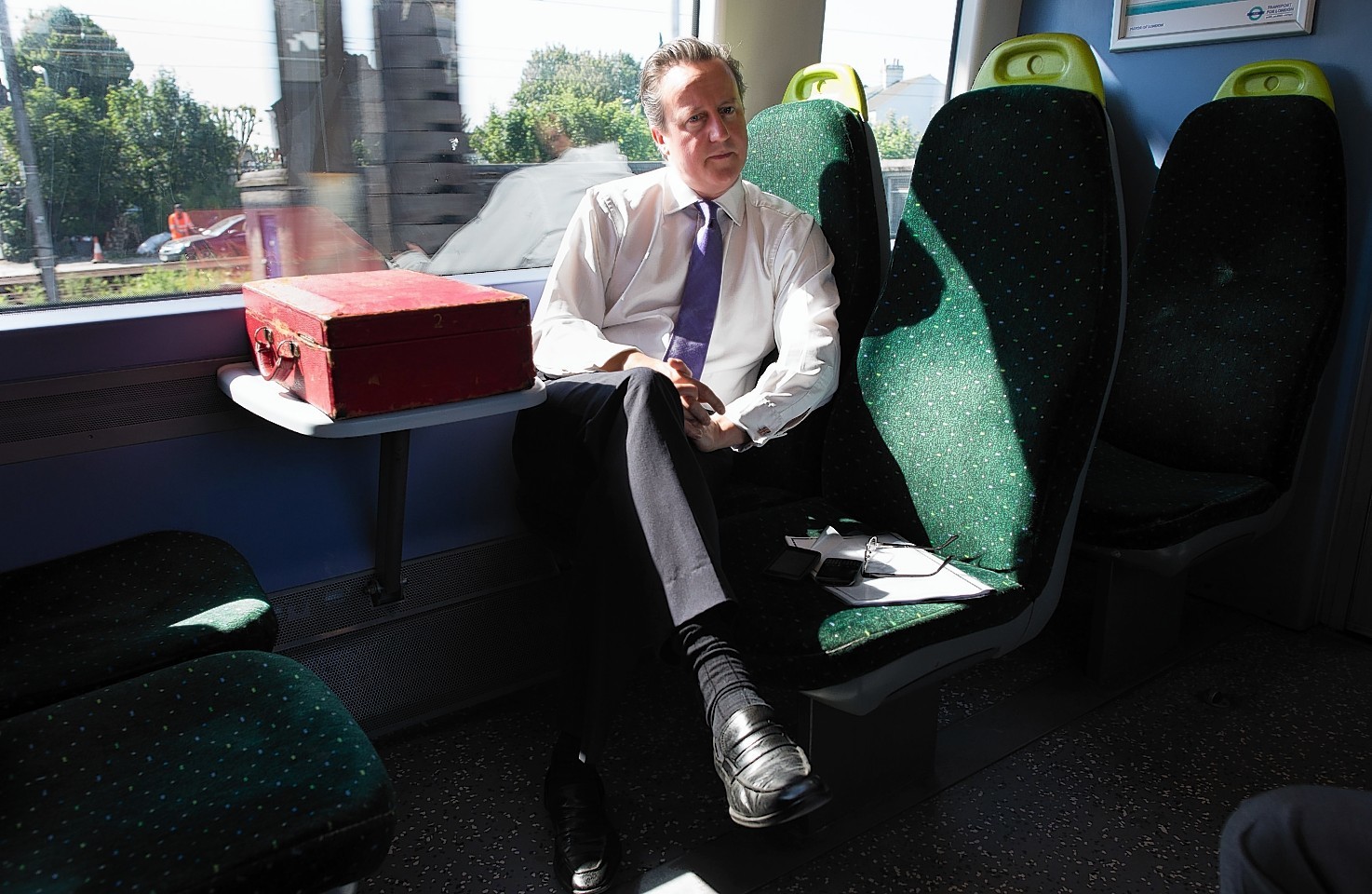David Cameron yesterday claimed to have a “track record” of providing devolution as he appealed for voters to reject independence.
The prime minister said a Yes vote would spell the “end” of devolved home rule and an “irreversible” split from the rest of the UK.
During the start of a two-day campaign visit north of the border, he stressed that the UK had “more oomph” on the global stage, as long as it remained together.
Mr Cameron said the Conservatives, Liberal Democrats and Labour were all committed to handing more powers to the Scottish Parliament.
Staying in the UK would give Scotland the “best of both worlds”, he said.
Speaking during a visit to the Walcheren Barracks in Maryhill, Glasgow, he said his message to voters was: “It’s very important if you want further devolution, the way to get it is a No vote.
“A Yes vote is an end to devolution, it’s the start of irreversible separation.”
Despite claims to the contrary, Mr Cameron insisted that over the past four years he had fulfilled his pledge of delivering more powers for Holyrood.
Mr Cameron said he was the prime minister who devolved policing and justice to Northern Ireland, who had overseen more powers granted to Cardiff as well as the Scotland Act – “one of the largest acts of devolution that has ever taken place”.
“So I think I have a track record of showing respect of the nations of the United Kingdom and achieving devolution so that our family of nations can stay together and find a settlement with which all are comfortable,” he said.
Although the SNP accuse pro-unionists of trying to scare voters away from independence, Mr Cameron said he made no apology for highlighting the “risk” of separation, and added: “I think it would be a dereliction of a politician’s duty not to raise those things.”
Last night, First Minister Alex Salmond re-iterated his challenge to Mr Cameron for a head-to-head debate.
He said: “Nobody will believe Tory promises of more powers for Scotland, because the last time that happened the only thing Scotland got was Thatcherism and 18 years of Tory governments we didn’t vote for.
“The Prime Minister is perfectly entitled to come to Scotland, and we are perfectly entitled to ask why he isn’t prepared to have a debate in Scotland.”
